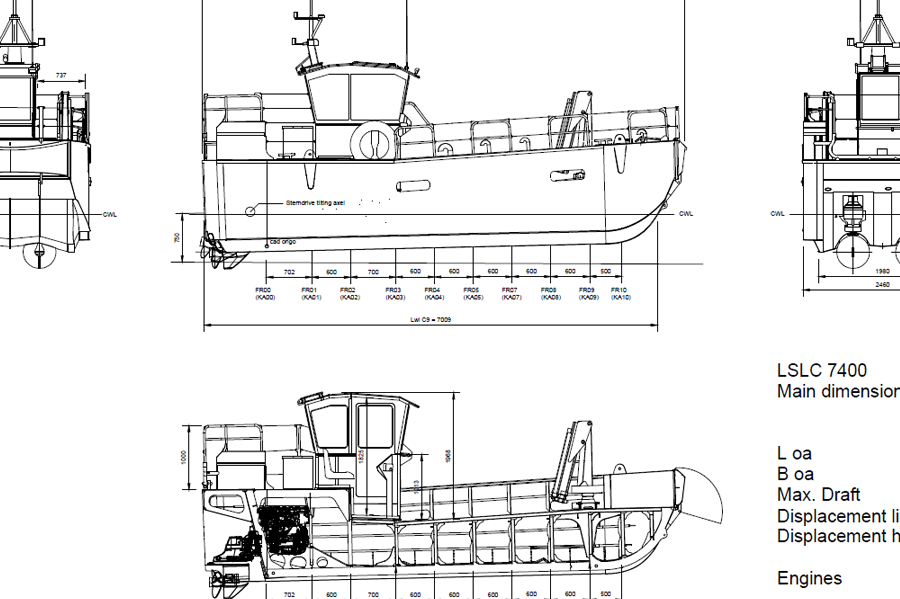Typically, vessels are divided into two main categories — commercial and pleasure craft, each of which poses its own registration issues. However, registering working boats, such as the EMSA oil recovery boats tasked to us, can be a little more complicated.
In early 2022, Lorrendraaier received correspondence regarding registering a group of boats custom-built by the LAMAR shipyard in Finland for the European Maritime Safety Agency. Amongst other things, LAMAR specialises in developing solutions to limit environmental damage done by maritime oil spills.
The eight boats we were asked to register were purpose-built to clean up oil spills within the EU.
 Measuring just over 7 meters, these small near-shore oil recovery boats can be transported in a trailer or by air. Both of these can simply be rolled into an aircraft and flown to the destination of the oil spill. A heavy-duty 4×4 then tows them to the location of the oil spill.
Measuring just over 7 meters, these small near-shore oil recovery boats can be transported in a trailer or by air. Both of these can simply be rolled into an aircraft and flown to the destination of the oil spill. A heavy-duty 4×4 then tows them to the location of the oil spill.
Challenges:
Of the ten vessels assigned to us, eight needed to be registered in multiple EU countries. Naturally, registering vessels in various EU countries is complex, given the differing regulations and bureaucratic processes.
In general, commercial or working boats commute with the purpose of earning money; be it by ferrying passengers, moving goods, or commercial fishing and the like. However, our oil recovery boats fell under no such category, performing more of a philanthropic service than anything else.
So, the registration process was by no means straightforward or standard. Other issues we encountered registering our oil recovery boats were:
- The tender for the boats was awarded during the COVID-19 pandemic, meaning all documents were electronically signed, including the procurement agreement.
- Many ship registrars asked for paperwork with wet signatures, which didn’t exist.
- The boats were built and delivered by tender without a Bill of Sales, which was often requested.
- Providing the rather voluminous tender procurement agreement for the boats in lieu of a Bill of Sales wasn’t ideal, either.
- Being an agency, not a private or commercial entity, it was difficult to register boats under EMSA’s name in one EU state.
Approach & Outcome:
Our approach differed per EU country. In some instances, we called on our network of local partners to help ease the process. Locals are typically savvier with the regulations and speak the language, which can greatly speed up and simplify registration.
In other EU countries, we had to liaise, going back and forth with documents and correspondence in order to meet the expected regulations. Luckily, many countries’ ship registrars were quite cooperative in registering our oil recovery boats.
In one country, we managed to register our oil recovery boats smoothly within two weeks. However, while some registrations posed a few issues, others were more of a challenge. In a specific EU state, the registrations are still pending due to the complex regulations and laws here.
However, all in all, we managed to register the boats in all countries except those still pending — a resounding success overall.
Registering Working Vessels with Lorrendraaier
Here at Lorrendraaier, we don’t just take on standard commercial or pleasure craft registrations. We can handle a number of types of boat registration — including working vessels such as our EMSA oil recovery boats. We also handle group registrations of multiple boats across multiple EU countries.
Please do enquire if you have any vessel or group thereof you require registration for — or any other registration-related services.



- K-Fins
reply